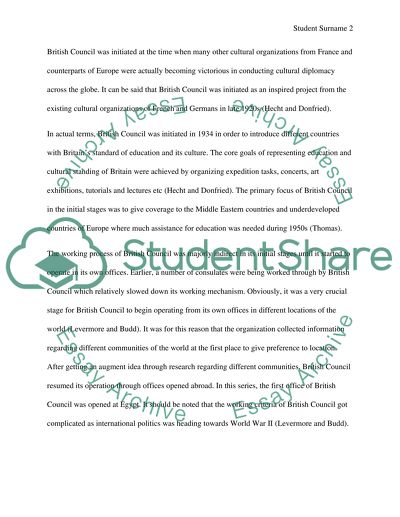Cite this document
(“The importance of the British Council in Britain's cultural diplomacy Essay”, n.d.)
Retrieved de https://studentshare.org/history/1395947-the-importance-of-the-british-council-in-britain-s
Retrieved de https://studentshare.org/history/1395947-the-importance-of-the-british-council-in-britain-s
(The Importance of the British Council in Britain'S Cultural Diplomacy Essay)
https://studentshare.org/history/1395947-the-importance-of-the-british-council-in-britain-s.
https://studentshare.org/history/1395947-the-importance-of-the-british-council-in-britain-s.
“The Importance of the British Council in Britain'S Cultural Diplomacy Essay”, n.d. https://studentshare.org/history/1395947-the-importance-of-the-british-council-in-britain-s.


